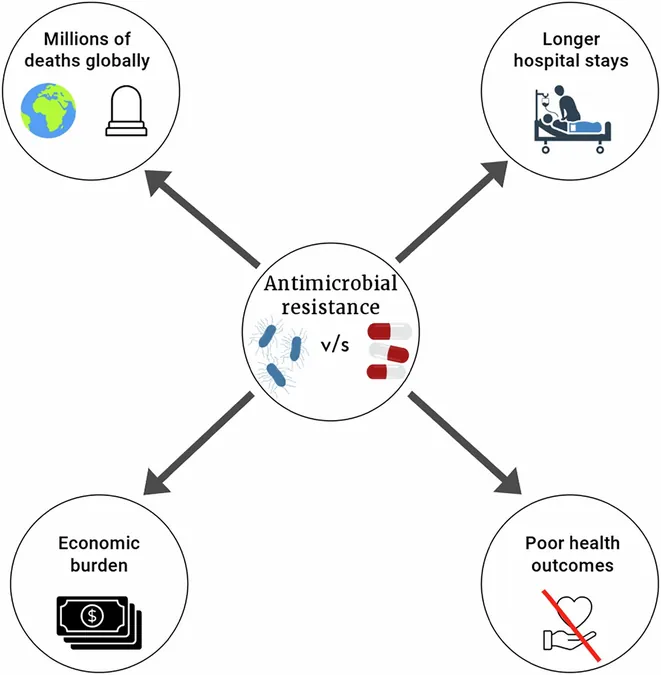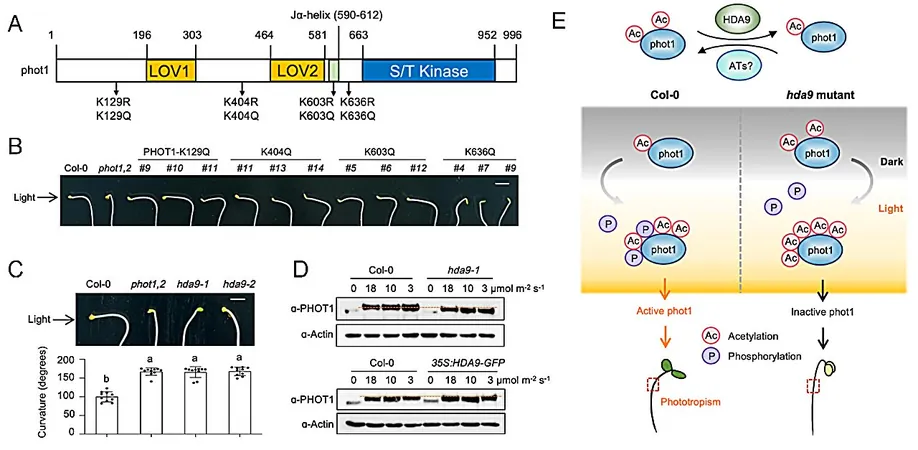
Urgent Global Action Needed to Combat Deadly Antimicrobial Resistance, Say Experts!
2025-06-13
Author: Ming
A Call to Action Against a Rising Health Crisis
Experts from King's College London have issued a stark warning: the urgent need to reform how new antibiotics are developed is paramount in fighting the escalating threat of antimicrobial resistance (AMR). In a comprehensive review featured in *npj Antimicrobials and Resistance*, they unravel the multitude of scientific, economic, and regulatory barriers that hinder progress against these formidable bacterial infections.
The Grim Reality of Antimicrobial Resistance
AMR is emerging as a catastrophic global health issue, responsible for nearly 5 million deaths annually. Without immediate and effective intervention, projections indicate this figure could soar to a staggering 10 million by 2050. The situation is particularly dire when it comes to Gram-negative bacteria, such as Klebsiella pneumoniae, notorious for causing life-threatening bloodstream infections even from routine medical procedures, and Acinetobacter baumannii, a known culprit in ventilator-associated pneumonia.
The Alarming Gap in Antibiotic Development
Despite the pressing need for new antibiotics, the market has seen a shocking decline in new drug approvals over the last two decades. The development pipeline is fraught with challenges—chief among them, financial viability. Antibiotics are typically utilized for short durations and only when absolutely necessary, generating far less profit compared to treatments for chronic conditions like cancer.
Big Pharma's Retreat: A Call for New Economic Models
As a result of these economic challenges, major pharmaceutical giants like AstraZeneca, Johnson & Johnson, and Pfizer have pulled back from antibiotic research. The review advocates for innovative economic models aimed at revitalizing industry interest in antibiotic development. By decoupling profit from the volume of sales, new incentive structures, such as research grants and tax benefits, could attract investment. For instance, the UK's Antimicrobial Product Subscription Model offers a compelling alternative by ensuring companies receive a fixed fee for access to new antibiotics regardless of usage.
Navigating Regulatory Obstacles
Another hurdle lies in the regulatory landscape, where clinical trials for antibiotics are often lengthy, costly, and fraught with complications. Diverse standards across countries exacerbate the problem, making it essential to enhance global coordination and establish clearer guidelines for trial design and approval processes.
Scientific Innovations Needed for New Antibiotics
The development of new antibiotics against Gram-negative bacteria poses significant scientific challenges, including tackling their robust outer membranes and intricate resistance mechanisms. Identifying effective drug targets and compounds capable of combating these resistant organisms is crucial.
Harnessing New Scientific Frontiers
The review calls for the fusion of diverse expertise to breathe new life into antibiotic discovery. Pioneering scientific methods, such as using artificial intelligence to pinpoint promising molecules and exploring uncharted environments like the deep sea, are being considered. Non-traditional methods, such as phage therapy, are also on the radar, despite their unique set of challenges.
A Collaborative Path Forward
Prof. Miraz Rahman, the lead author and a prominent figure in medicinal chemistry, underscores that revitalizing the antibiotic pipeline necessitates cross-disciplinary collaboration among academia, industry, policy-makers, and global health systems. "Innovative science must be paired with a supportive economic and regulatory environment to deliver new antibiotics to patients," he asserts.
The Bottom Line: Urgency for Action
This review serves as a resounding call to action for scientists, pharmaceutical developers, governments, and all stakeholders involved in antibiotic development. By outlining the present challenges and proposing a practical roadmap for collaboration, it emphasizes the critical need to work together to secure the future of modern medicine.



 Brasil (PT)
Brasil (PT)
 Canada (EN)
Canada (EN)
 Chile (ES)
Chile (ES)
 Česko (CS)
Česko (CS)
 대한민국 (KO)
대한민국 (KO)
 España (ES)
España (ES)
 France (FR)
France (FR)
 Hong Kong (EN)
Hong Kong (EN)
 Italia (IT)
Italia (IT)
 日本 (JA)
日本 (JA)
 Magyarország (HU)
Magyarország (HU)
 Norge (NO)
Norge (NO)
 Polska (PL)
Polska (PL)
 Schweiz (DE)
Schweiz (DE)
 Singapore (EN)
Singapore (EN)
 Sverige (SV)
Sverige (SV)
 Suomi (FI)
Suomi (FI)
 Türkiye (TR)
Türkiye (TR)
 الإمارات العربية المتحدة (AR)
الإمارات العربية المتحدة (AR)